Harold Boley
Perspectival Knowledge in PSOA RuleML: Representation, Model Theory, and Translation
May 02, 2018
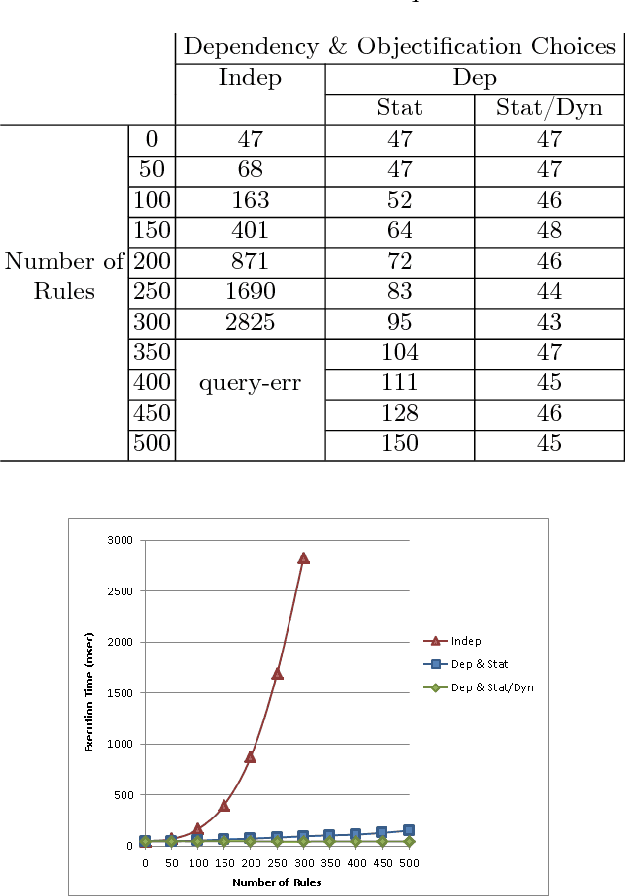
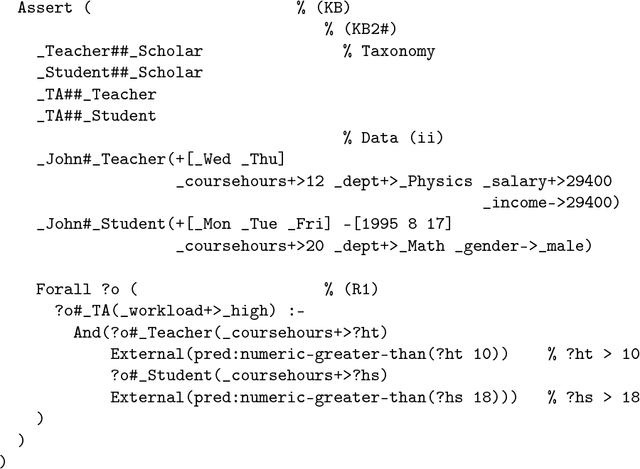
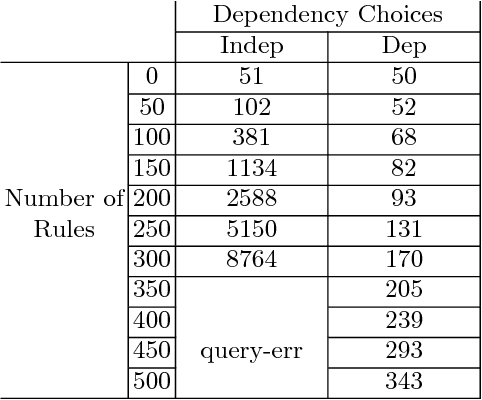
Abstract:In Positional-Slotted Object-Applicative (PSOA) RuleML, a predicate application (atom) can have an Object IDentifier (OID) and descriptors that may be positional arguments (tuples) or attribute-value pairs (slots). PSOA RuleML 1.0 specifies for each descriptor whether it is to be interpreted under the perspective of the predicate in whose scope it occurs. This perspectivity dimension refines the space between oidless, positional atoms (relationships) and oidful, slotted atoms (frames): While relationships use only a predicate-scope-sensitive (predicate-dependent) tuple and frames use only predicate-scope-insensitive (predicate-independent) slots, PSOA RuleML 1.0 uses a systematics of orthogonal constructs also permitting atoms with (predicate-)independent tuples and atoms with (predicate-)dependent slots. This supports data and knowledge representation where a slot attribute can have different values depending on the predicate. PSOA thus extends object-oriented multi-membership and multiple inheritance. Based on objectification, PSOA laws are given: Besides unscoping and centralization, the semantic restriction and transformation of describution permits rescoping of one atom's independent descriptors to another atom with the same OID but a different predicate. For inheritance, default descriptors are realized by rules. On top of a metamodel and a Grailog visualization, PSOA's atom systematics for facts, queries, and rules is explained. The presentation and (XML-)serialization syntaxes of PSOA RuleML 1.0 are introduced. Its model-theoretic semantics is formalized by extending the interpretation functions for dependent descriptors. The open PSOATransRun system since Version 1.3 realizes PSOA RuleML 1.0 by a translator to runtime predicates, including for dependent tuples (prdtupterm) and slots (prdsloterm). Our tests show efficiency advantages of dependent and tupled modeling.
A Homogeneous Reaction Rule Language for Complex Event Processing
Aug 04, 2010
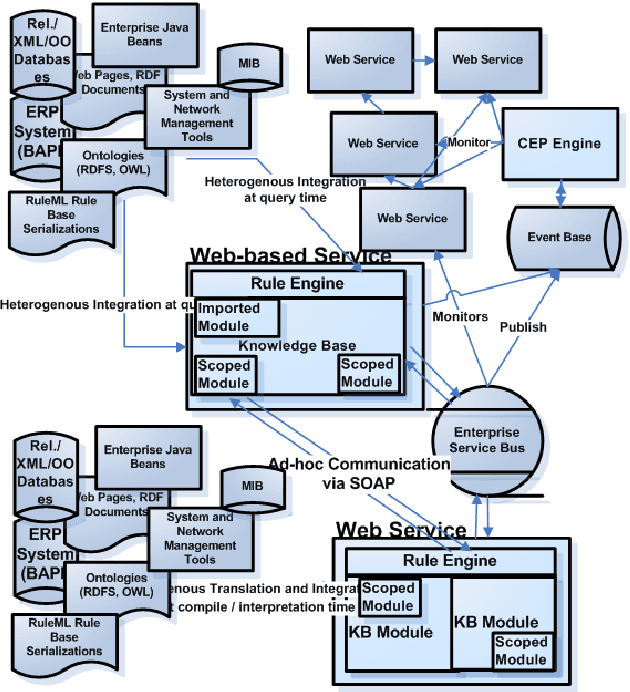
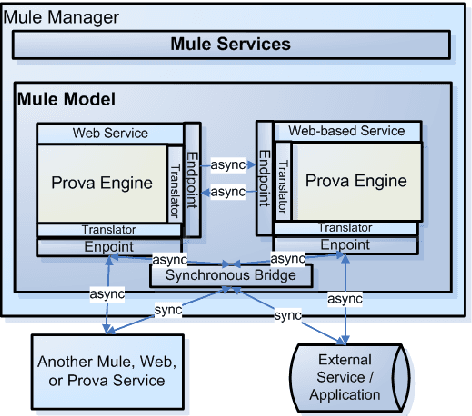
Abstract:Event-driven automation of reactive functionalities for complex event processing is an urgent need in today's distributed service-oriented architectures and Web-based event-driven environments. An important problem to be addressed is how to correctly and efficiently capture and process the event-based behavioral, reactive logic embodied in reaction rules, and combining this with other conditional decision logic embodied, e.g., in derivation rules. This paper elaborates a homogeneous integration approach that combines derivation rules, reaction rules and other rule types such as integrity constraints into the general framework of logic programming, the industrial-strength version of declarative programming. We describe syntax and semantics of the language, implement a distributed web-based middleware using enterprise service technologies and illustrate its adequacy in terms of expressiveness, efficiency and scalability through examples extracted from industrial use cases. The developed reaction rule language provides expressive features such as modular ID-based updates with support for external imports and self-updates of the intensional and extensional knowledge bases, transactions including integrity testing and roll-backs of update transition paths. It also supports distributed complex event processing, event messaging and event querying via efficient and scalable enterprise middleware technologies and event/action reasoning based on an event/action algebra implemented by an interval-based event calculus variant as a logic inference formalism.
 Add to Chrome
Add to Chrome Add to Firefox
Add to Firefox Add to Edge
Add to Edge